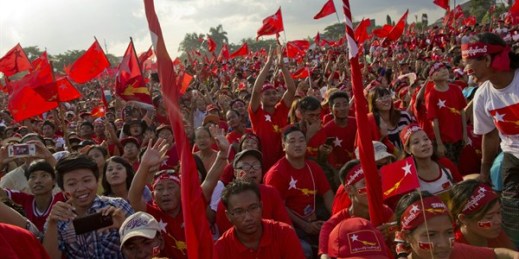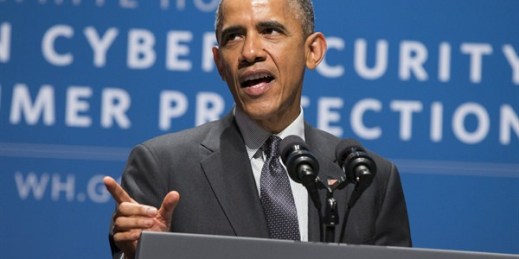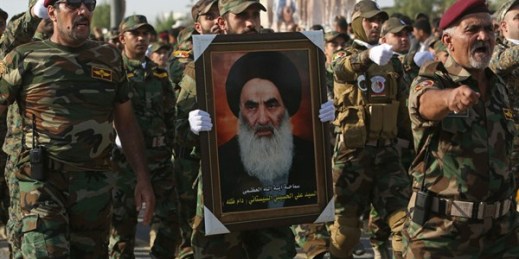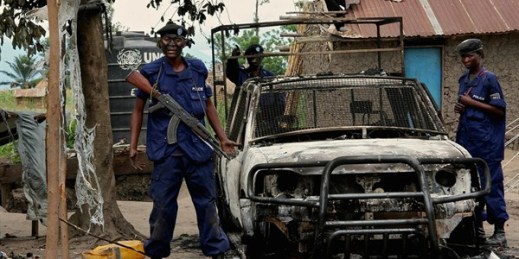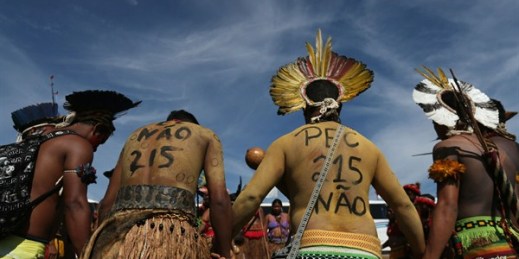
In June 2014, a video released by FUNAI, the Portuguese acronym for Brazil’s Department for Indian Affairs, captures the moment seven members of an unnamed, previously uncontacted tribe from the Amazon rainforest made their first voluntary contact with the modern world. The video shows the men emerging naked from the forest onto the banks of the River Envira in the western Brazilian state of Acre, close to the Peruvian border. After calling out, singing and signaling with their hands, they crossed the river to a small indigenous settlement of the local Ashaninka people on the other side. The men told […]

